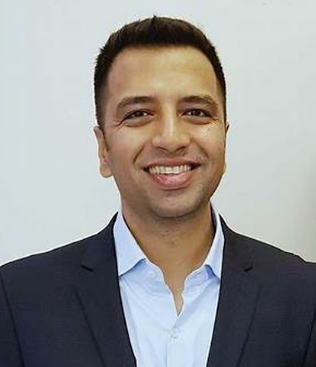“I anticipate substantial global growth in phage therapy”
December 31, 2023 | Sunday | Views
Pranav Johri, Founder, Vitalis Phage Therapy and a Fellow of the Society of Bacteriophage Research and Therapy, is a pioneer in establishing a company based on phage therapy. In a brief discussion, Johri reveals what led him to founding Vitalis Phage Therapy and his outlook to the future of bacteriophage therapy in India
What made you venture and create a company based on phage therapy?
My personal experience with phage therapy, which proved to be a successful treatment for my multi-drug resistant infection in 2016, inspired me to establish Vitalis Phage Therapy, India's foremost phage therapy initiative. In 2016, I was diagnosed with chronic bacterial prostatitis, caused by a multidrug resistant polymicrobial infection. After months of extensive research, I embarked on a journey to the renowned 100-year-old Eliava Institute of Bacteriophages, Microbiology, and Virology to undergo phage treatment for my condition. The successful outcome of phage therapy in treating my multi-drug resistant infections fuelled my commitment to raise awareness of and provide access to phage therapy in India, ultimately resulting in me establishing Vitalis Phage Therapy. Thereafter, Vitalis inked partnerships with the Eliava Institute and the Eliava Phage Therapy Centre to develop the necessary infrastructure for phage therapy in India.
What market opportunity do you envisage for phage therapeutics in the years to come?
The issue of antibiotic resistance is escalating worldwide. Forecasts predict increased fatalities due to antibiotic-resistant infections by 2050. The extensive and inappropriate use of antibiotics during the COVID-19 pandemic further amplified this trend. I am of the opinion that phage therapy represents one of the most promising approaches to combatting multidrug-resistant infections, thereby lessening the severity and fatality rates associated with such infections. Looking ahead, I anticipate substantial global growth in phage therapy. This growth will be propelled by increased phage research at academic institutions, the establishment of phage therapy units in hospitals, and the widespread adoption of phage therapy in cases where patients suffer from drug-resistant infections.
How do you think India has to progress in making phage therapy as the most suitable way of tackling AMR?
While India is the land where phages were first discovered over a century ago, our healthcare systems are still far away from adopting phage therapy as an efficient way to tackle AMR. Currently, phage therapy is only available as compassionate treatment for patients whose infections have become multidrug resistant.
To reach a situation where phage therapy is readily available and can be deployed by doctors across the country, from big cities to small towns, the following steps need to be enforced:
Awareness - Large scale awareness campaigns are needed to educate the healthcare sector of the mechanism and utility of phages in cases of antibiotic resistant infections.
Development of Phage Banks - Phage research and development needs to be accelerated so that as awareness increases, ready-to-use phage banks are made available at the same time for patients for whom antibiotic use is no longer an option.
Clinical Trials - These are needed to study the clinical application of phages so that they can be regulated for use beyond compassionate treatment.
Anusha Ashwin









